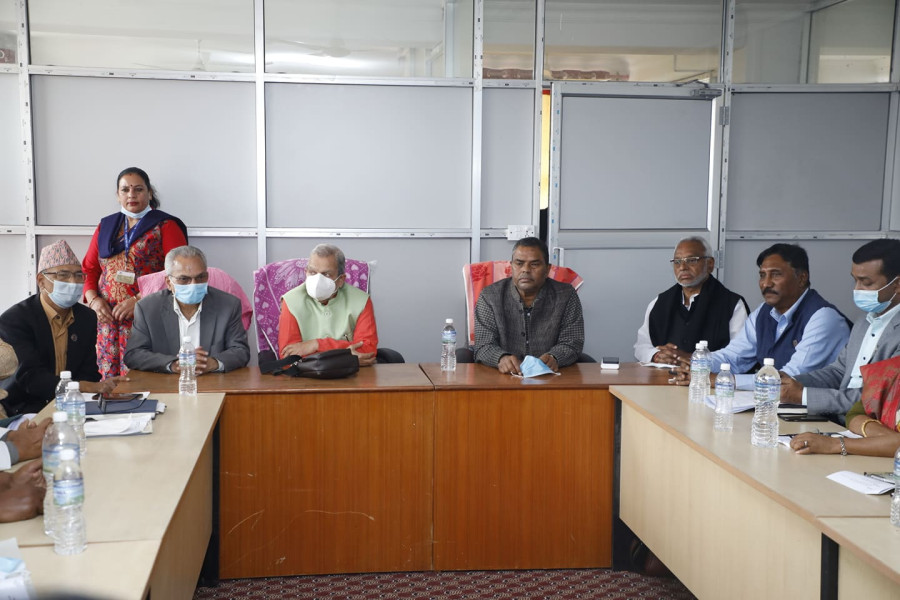Editorial
The difficulty of being JSP
It risks becoming a collateral damage in the clash among the big three political titans.
It’s been a busy schedule for the Janata Samajbadi Party (JSP). With 34 members (two suspended), it is the fourth largest party in Parliament, but the arithmetical game of parliamentary democracy has brought it to centre stage of Nepali politics. As the Nepal Communist Party spearheaded by KP Sharma Oli and Pushpa Kamal Dahal got embroiled in factional politics and then eventually got dismembered through a Supreme Court order, the JSP became an unlikely kingmaker. Its leaders, clearly divided into two ideological factions, have for the past few weeks been travelling back and forth between Baluwatar, Budhanilkantha and Paris Danda, trying, variously, to make or break a government.
Half of its members, led by Mahantha Thakur and Rajendra Mahato, stayed neutral during Prime Minister KP Sharma Oli’s May 10 confidence vote while the other half, led by Upendra Yadav and Baburam Bhattarai, voted against Oli. It is this rupture that paved the way for Oli to return to power on May 13 as per Article 76 (3) of the constitution as the leader of the party with the highest number of members in Parliament. And now, the party is seemingly willing to transition from kingmaker to king itself, presenting Mahantha Thakur as the prime ministerial candidate as per Article 76 (5) of the constitution if Oli fails to secure a vote of confidence before June 14.
For that, the JSP needs either the support of the CPN-UML or the Maoist Centre-Nepali Congress alliance. Although the circumstances of petty parliamentary politics have brought the JSP to the centre stage, it should be extremely careful in its choices, for there is every chance that it could become an accidental casualty in the clash among the three political titans—the CPN-UML, the Maoist Centre and the Nepali Congress. One major difference between the JSP and other parties is that while the former still professes an agenda of identity and inclusion, the big three have survived despite thwarting those issues or abandoning them altogether. Having made identity politics its ideological backbone, the JSP cannot afford to leave it and get enmeshed in the arithmetical game of making or breaking governments along with the big three.
A Madhesi political figure becoming the country’s prime minister would be a great affirmative change. But an opportunity brought about by a petty political game rather than an actual change in democratic politics does not mean much. Rather, it will be the coup de grâce to whatever legitimacy Madhesi leaders are left with. Thakur or any other Madhesi leader with marginal numerical strength cannot bring about much change even if they were appointed the prime minister. A case in point is an amendment to the constitution, a long-time demand of the Madhes-based parties. The JSP is unlikely to enforce a constitutional amendment just by being in power, as a motion to this effect needs the nod of two-thirds of parliamentarians.
In such a scenario, the only outcome will be that they will fail to implement structural changes in Nepali society and politics. It will then herald the beginning of the denouement for a party that rose to prominence riding on the inclusivity agenda. The JSP cannot afford to be co-opted and corrupted by the big three. So it must take its next steps carefully.




 19.35°C Kathmandu
19.35°C Kathmandu














